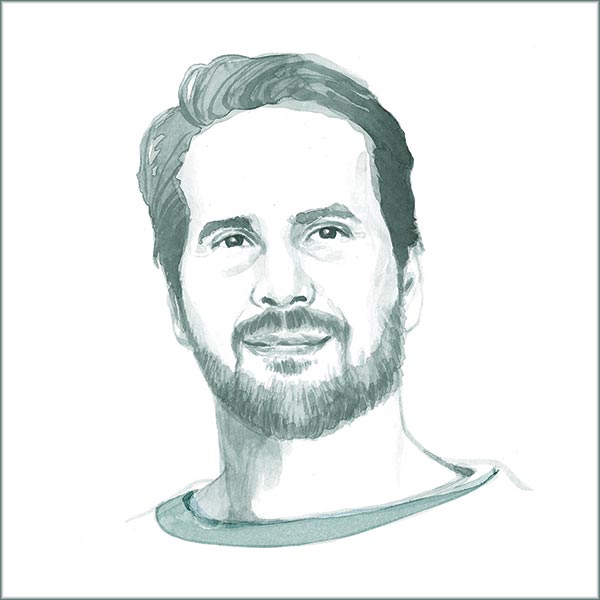UNIVERSITY STRUCTURES
The power of the academic oligarchy
It’s often claimed that professors are ‘kings’ of their own little realms and are almost impossible to organise. But top-down governance, which is common in the USA, would be foreign to the Swiss university system. We look at how Swiss universities are trying to find a middle path.

Appearances can be deceptive. Professorial staff don’t actually like to be led from above. | Photo: ETH Zurich Library
The position of Rector at the University of St. Gallen doesn’t seem to be much sought-after. Ultimately, the man who got appointed was actually the one who’d been tasked with finding the best candidate. The chairman of the selection committee, the law professor Bernhard Ehrenzeller, was finally elected the new rector himself in 2019. At the time of his appointment, Ehrenzeller was 66 years old. The University of St. Gallen is full of experts on leadership, but it seems no one there actually wanted to show any.
The office of rector at a university is not generally one that appeals to many people. Michael Schaepman, the Rector of the University of Zurich, sums up the problem: “If you’re appointed dean, deputy rector or rector, your colleagues only say to you: ‘Oh dear, your poor thing’”.
Caspar Hirschi, a history professor and dean at the University of St. Gallen, is of the opinion that expert organisations like universities don’t actually want to be led. He is researching into the role of experts: “At a university there is an intentional leadership deficit, it’s a kind of professorial oligarchy”. In such an organisation, hardly anyone actually wants to take on the job of running it. But nor does anyone want an outsider to be appointed to do the job. The reason is simple: “Researchers would like to pursue their work undisturbed. The Rector is primarily expected to calm the system and ensure the freedoms of the academic staff”, says Hirschi. So they don’t like embarking on experiments. Universities in Switzerland have long been managed according to this basic principle. People call this academic self-government. Hierarchies are flat, and a rector is the primus inter pares, with little real power. But, given today’s global competition, is this really still the most appropriate structure for a university?
“Self-management in its pure form hasn’t existed for a long time now”, says Bernhard Nievergelt, who believes that the spirit of New Public Management has also left its traces in our universities. Nievergelt is the head of the Center for Higher Education and Science Studies at the University of Zurich, and is researching into the governance of universities. At present, he says, Swiss universities practice a mixture between the old, collegial model and the new management model. But it’s not yet anything concrete. “We’re all still working on it”, he says.
New personnel categories replace self-government
The faculties at various universities have thus been acquiring more competencies in recent years. At the University of Zurich, for example, the responsibility for professorial salaries was allocated to the deans. They are also allowed to manage the ‘rotating profits’ that occur when older personnel leave and younger, cheaper personnel replace them. As a result, “Deans act with greater autonomy and plan their professorships in a much more strategic manner”, says Michael Schaepman. This still looks like self-government. But delegating tasks from the Rector’s office to the faculties is a sign that there is a new understanding of management, says Nievergelt.
This is also proven by the rapid growth of a new category of university personnel with the name ‘third space’. What sounds like the title of an X-Files episode actually refers to staff who are active in the intermediary world between scholarship and management. They are university-trained themselves, and their task is to support researchers in knowledge management. They help them to submit applications for third-party funds, for example, they offer assistance in getting permissions for animal experiments, and they help to supervise large-scale experiments. “Academic self-government used to mean that the researchers took on these tasks themselves”, says Schaepman. The ‘third space’ gives them more time to do actual research.
But not even this third space can solve the fundamental problem, namely that many researchers are barely interested in the organisation of their university, if at all. “The issue that faces universities today is this: How can they best deal with the obstinacy and ignorance of their researchers?”, says Nievergelt. There are still scientists who think: “Organisational matters don’t concern me. If I don’t like something, I’m gone”.
Wouldn’t a presidential model based on the US system be better? One in which the person in charge has greater powers? Nievergelt’s answer is unspectacular: it depends what you mean by ‘better’. At any rate, no correlation has been established between a university’s organisational model and its research outputs, he says.
Any comparison with the presidential model common at the top US universities is difficult in any case. They tend to be privately run, and Swiss universities are financed differently. Here, the public universities get a solid amount of basic funding from the state, which means that they don’t have to engage in complicated fundraising efforts such as are the norm in the USA. Researchers who can bring in sufficient third-party funds in the USA are able to ‘buy’ their way out of teaching, whereas the state’s educational mandate at Swiss public universities means that all professors have to teach. “Our organisational structure is a reaction to the manner in which our educational system is financed”, says Schaepman.
Flexible, top-down systems from the USA
Universities with a hierarchical governance system have certain advantages, however, that could also prove positive in a Swiss context – such as in matters of flexibility and speed. This is the opinion of Martin Vetterli, President of EPFL, which is the university in Switzerland with the most pronounced top-down governance structures. This presidential system has existed since the university was founded and is identical to that of ETH Zurich. Vetterli’s predecessor Patrick Aebischer used this system to restructure the university according to the American model – with him as the boss who led the university from the top down. This also shows just how much the structure of a university can depend on how its boss decides to organise it.
The structure of EPFL enables it to react quickly to things today, says Vetterli. “Within the space of 18 months, we were able to set up a new Master programme”. In a university with a different governance system, it would probably have taken longer. However, Vetterli insists that universities of technology such as EPFL and ETH have duties to politicians, business and society, so they have to be more agile and able to act quicker than the traditional university.
But not even at EPFL is it possible to ignore the professors when it comes to running the institution, says Vetterli, and he quotes a saying that’s popular in the USA: “Managing professors is like herding cats. It’s impossible. You can only move the food”.
In crisis situations, a presidential system has advantages. “In a professorial oligarchy, the top person has to assume responsibility, even though they often have no chance at all of preventing a crisis”, says the historian Caspar Hirschi. As an example, he mentions the Mörgeli case at the University of Zurich. An internal problem at an institute escalated. The Rector wanted to clean things up, but he failed, because he had too little power in the face of resistance from the professors. So the Rector had to go. “An institutionally stronger boss would have had fewer problems”, says Hirschi.
But for the moment, it’s unlikely that this is going to happen at most Swiss universities. Hirschi thinks it would be unrealistic for Switzerland to switch to a top-down governance model, despite recurrent scandals. “The price of professorial freedom is that there will always be people who don’t keep to the rules”.




